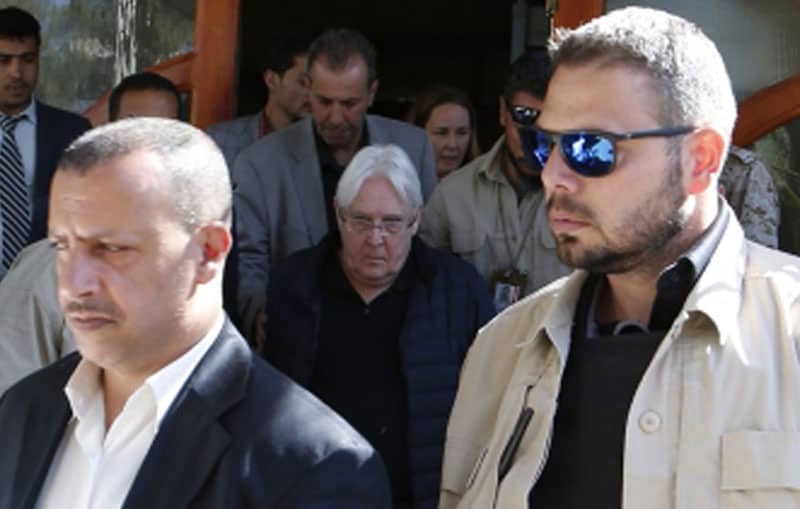Sanaa: A Huthi rebel delegation returned Friday to Yemen’s insurgent-controlled capital of Sanaa after wrapping up an initial round of breakthrough UN-brokered peace talks in Sweden.
The Kuwaiti plane carrying the delegation touched down at 11:00 am (0800 GMT) at Sanaa international airport, where flights are heavily restricted due to the conflict between the rebels and a Saudi-led coalition that backs the government.
A crowd of some 400 people, including rebel officials and civilians, were there to greet the returnees on the runway before they headed into a reception hall.
“We wanted to prove to the world that while we are confrontational men, we are also men of peace,” said delegation member Jalal al-Ruwaishan.
The round of talks in Sweden were “the first steps on the road to peace and addressing the humanitarian situation” in war-torn Yemen, he added.
A guarantee of the Iran-backed rebels’ safe return to Sanaa was a key condition in their participation in talks this week in the Swedish town of Rimbo.
Negotiations hosted by Kuwait in 2016 broke down after 108 days and left rebel delegates stranded in Oman for three months.
Talks set for September faltered when the Huthis refused to leave Sanaa — which the rebels have controlled since 2014 — accusing the UN of failing to guarantee their delegation’s return.
UN envoy Martin Griffiths had accompanied the rebels aboard a Kuwaiti plane on December 4 for their outbound flight to Sweden for the week of negotiations.
In a tweet on Friday, Huthi spokesman Mohammed Abdelsalam thanked Griffiths, Oman, Kuwait and Sweden for the “facilitation and success” of the negotiations.
– ‘Qualitative leap’ –
Impoverished Yemen has been mired in fighting between the Huthi rebels and troops loyal to President Abedrabbo Mansour Hadi since 2014.
The war escalated in 2015 when a Saudi-led military coalition stepped in on the government’s side.
The conflict has since killed nearly 10,000 people, according to the World Health Organization, but other rights groups believe the toll to be far higher.
Yemen’s warring parties on Thursday agreed to a ceasefire for a vital port in a series of breakthroughs.
If implemented, the deal for Hodeida port — a key gateway for aid and food imports — could bring relief to a country where 14 million people stand on the brink of famine.
Saudi Arabia and its allies accuse the rebels of arms smuggling from Iran through Hodeida and the capital Sanaa, charges Tehran has denied. The Saudi led-military coalition controls Yemen’s maritime borders and airspace.
The two sides also reached a “mutual understanding” on Yemen’s third city Taiz — under control of pro-government forces but besieged by the rebels — to facilitate delivery of aid.
They also agreed a mass prisoner swap, exchanging more than 15,000 names, and are set to hold a new round of talks next month.
“We discussed all confidence building issues… with the intention of making concessions,” delegation member Jamal Amer told AFP.
“We sought as much as we could not to disrupt the port of Hodeida.”
Another member of the delegation, Yahya Nouri, said he hoped the agreements would be implemented “in the coming days”.
“God willing, a qualitative leap will be achieved that will create confidence in negotiations that are more capable of dealing with outstanding issues,” he said.
No deal has been reached on the future of Sanaa’s airport, closed to commercial flights for nearly three years.
The airport will be discussed at the next round of talks, The UN’s Griffiths said.
[source_without_link]AFP[/source_without_link]

